Why did HPE buy Cray?
Is the tech giant branching out into new areas, or consolidating an existing strategy?
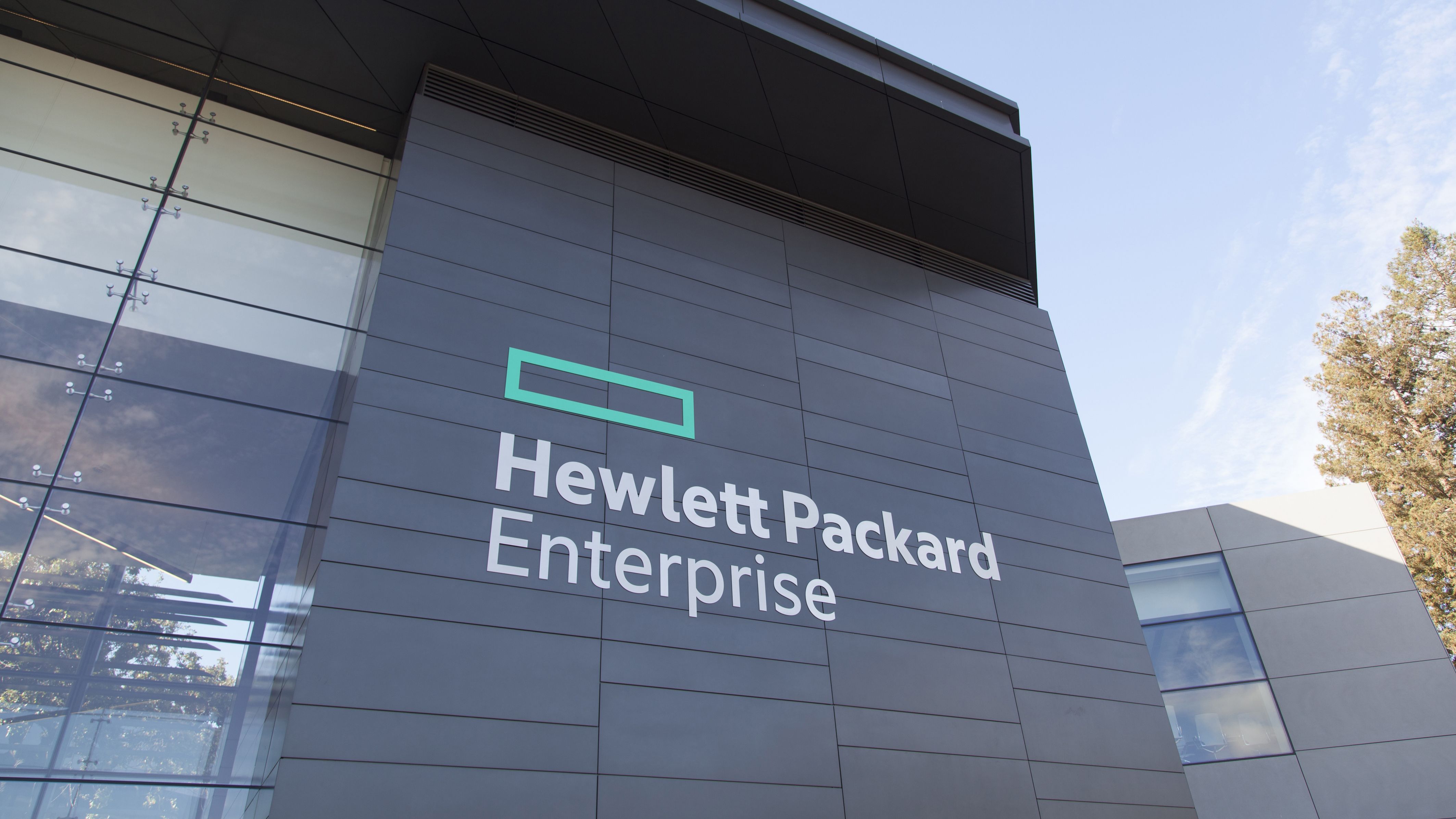

Late on Friday, Hewlett Packard Enterprise (HPE) dropped some big news in more ways than one.
The company had acquired supercomputing behemoth Cray, one of the largest and most famous players in the field of supercomputers and high-performance computing (HPC).
Recently it has been working with the US Department of Energy on exascale computing projects, and announced in May its 'Frontier' project that it claimed will be the "world's most powerful computer" with a performance of greater than 1.5 exaflops. Although it's not due to be delivered until 2021 and a lot can happen in that time.
So what does this mean for HPE and the wider enterprise hardware market?
For a start, this is the second acquisition HPE has made in the supercomputing/HPC arena, having bought SGI in 2016, and it seems both the company's rationale and integration plans are largely the same. Cray, like SGI, provides HPC hardware that sits alongside HPE's own Apollo servers. But the similarities don't stop there. Both companies, prior to their acquisition, have been pouring resources into AI and machine learning (ML) systems; an area in which HPE is keen to expand.
Indeed, John Abbott, co-founder and distinguished analyst at 451 Research told IT Pro that while exascale is the "obvious goal that Cray will enable HPE to target", AI and ML may be the real draw.
"Cray's more recent focus on heterogeneous processors and clustering, and its interesting work on dynamic runtime software stacks that enable AI and data analytics workloads to be run on HPC-like infrastructure, will potentially be of even more interest to HPE as it looks to broaden out the applicability of supercomputing and HPC to other market areas, including hyperscale clouds," he said.
Get the ITPro daily newsletter
Sign up today and you will receive a free copy of our Future Focus 2025 report - the leading guidance on AI, cybersecurity and other IT challenges as per 700+ senior executives
It seems HPE does have big plans for Cray spread across many of its business units, based on the company's initial announcement.
GreenLake, HPE's pay-per-use private cloud service, will in the future offer HPC-as-a-Service (HaaS? HPaaS? HPCaas? The possibilities are endless) as well as AI and ML-based analytics.
Its hardware will be separately incorporated into HPE's product line-up and the business also sees the opportunity to bolster its big data processing tech.
In short, this can be seen as a further example of the company showing its "laser focus", to use the tech world lingo, on high-performance hardware and emerging(ish) analytical systems having spent the past four years following its split from HP Inc spinning off non-core business units. It also shows the company is very serious about making a success of GreenLake by offering as many top-notch services as possible.
Industry impact
For HPE's main competitors, such as Dell Technologies, IBM and others, this acquisition may have come as something of a surprise, as it did to some industry watchers. Whether or not it will perturb them, though, is another matter.
Roy Illsley, distinguished analyst at Ovum, tells IT Pro the acquisition can be seen in one of two ways.
"Either it's a desperate attempt to create a market they can own and put their name to in an increasingly competitive market, particularly from the Chinese vendors," he said, "or it's a smart strategic move to position itself ready for the next wave of computational demand."
On this second point, however, Illsley notes that quantum computing, which is being pursued by the likes of IBM, Google and Microsoft, may render supercomputers pointless in 15 years or so. In this light, the acquisition could be "a mid-term strategic move to make cash before the next paradigm shift".
Whichever way the dice fall, more information about the acquisition and where it lies in the grand scheme of things will likely be revealed at HPE's annual Discover conference in mid-June.

Jane McCallion is Managing Editor of ITPro and ChannelPro, specializing in data centers, enterprise IT infrastructure, and cybersecurity. Before becoming Managing Editor, she held the role of Deputy Editor and, prior to that, Features Editor, managing a pool of freelance and internal writers, while continuing to specialize in enterprise IT infrastructure, and business strategy.
Prior to joining ITPro, Jane was a freelance business journalist writing as both Jane McCallion and Jane Bordenave for titles such as European CEO, World Finance, and Business Excellence Magazine.
-
 Bigger salaries, more burnout: Is the CISO role in crisis?
Bigger salaries, more burnout: Is the CISO role in crisis?In-depth CISOs are more stressed than ever before – but why is this and what can be done?
By Kate O'Flaherty Published
-
 Cheap cyber crime kits can be bought on the dark web for less than $25
Cheap cyber crime kits can be bought on the dark web for less than $25News Research from NordVPN shows phishing kits are now widely available on the dark web and via messaging apps like Telegram, and are often selling for less than $25.
By Emma Woollacott Published
-
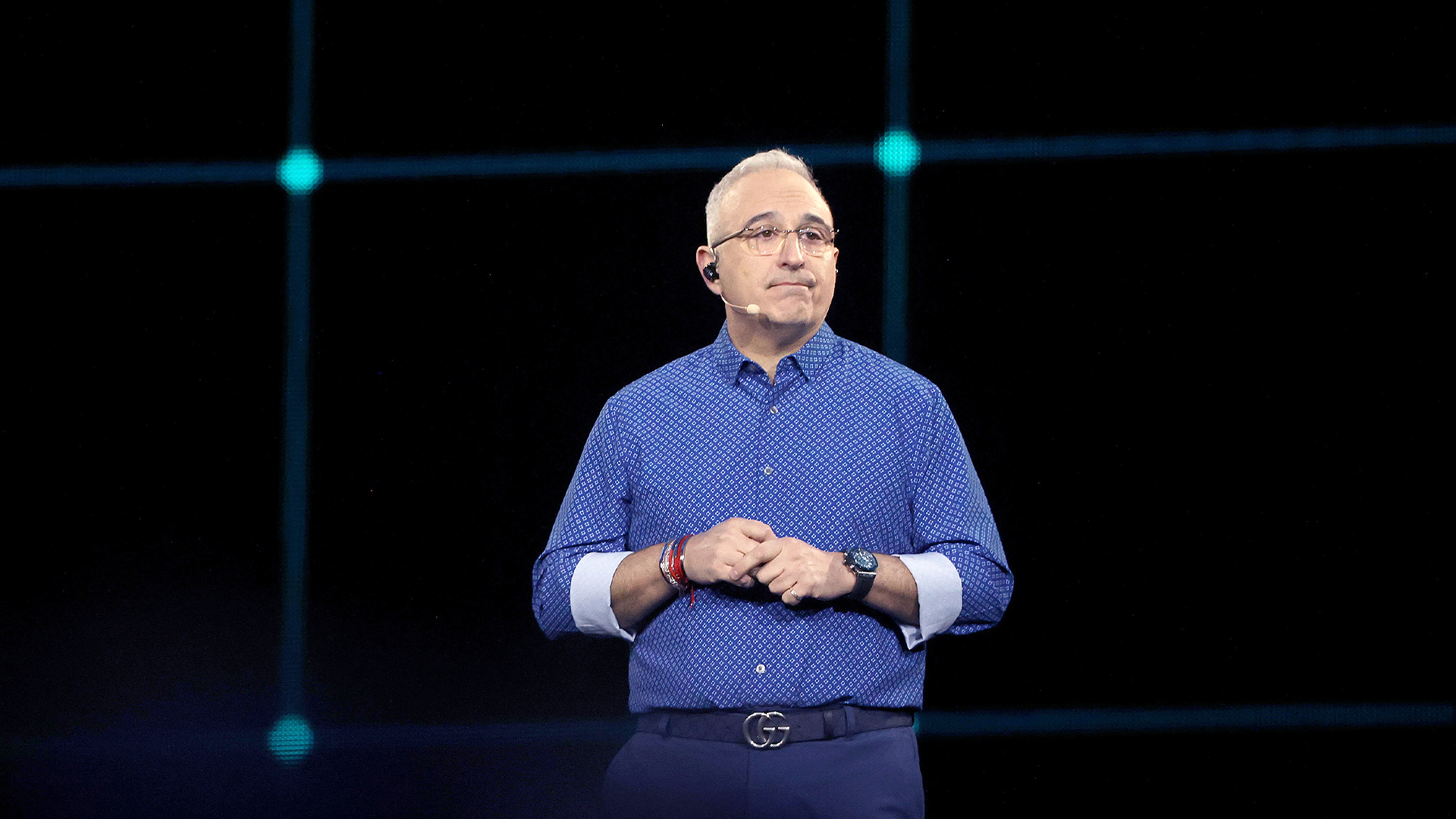 What HPE's results say about the direction of enterprise AI
What HPE's results say about the direction of enterprise AIAnalysis As with cloud computing, some companies value privacy over capacity
By Jane McCallion Published
-
 Gaining timely insights with AI inferencing at the edge
Gaining timely insights with AI inferencing at the edgeWhitepaper Business differentiation in an AI-everywhere era
By ITPro Published
-
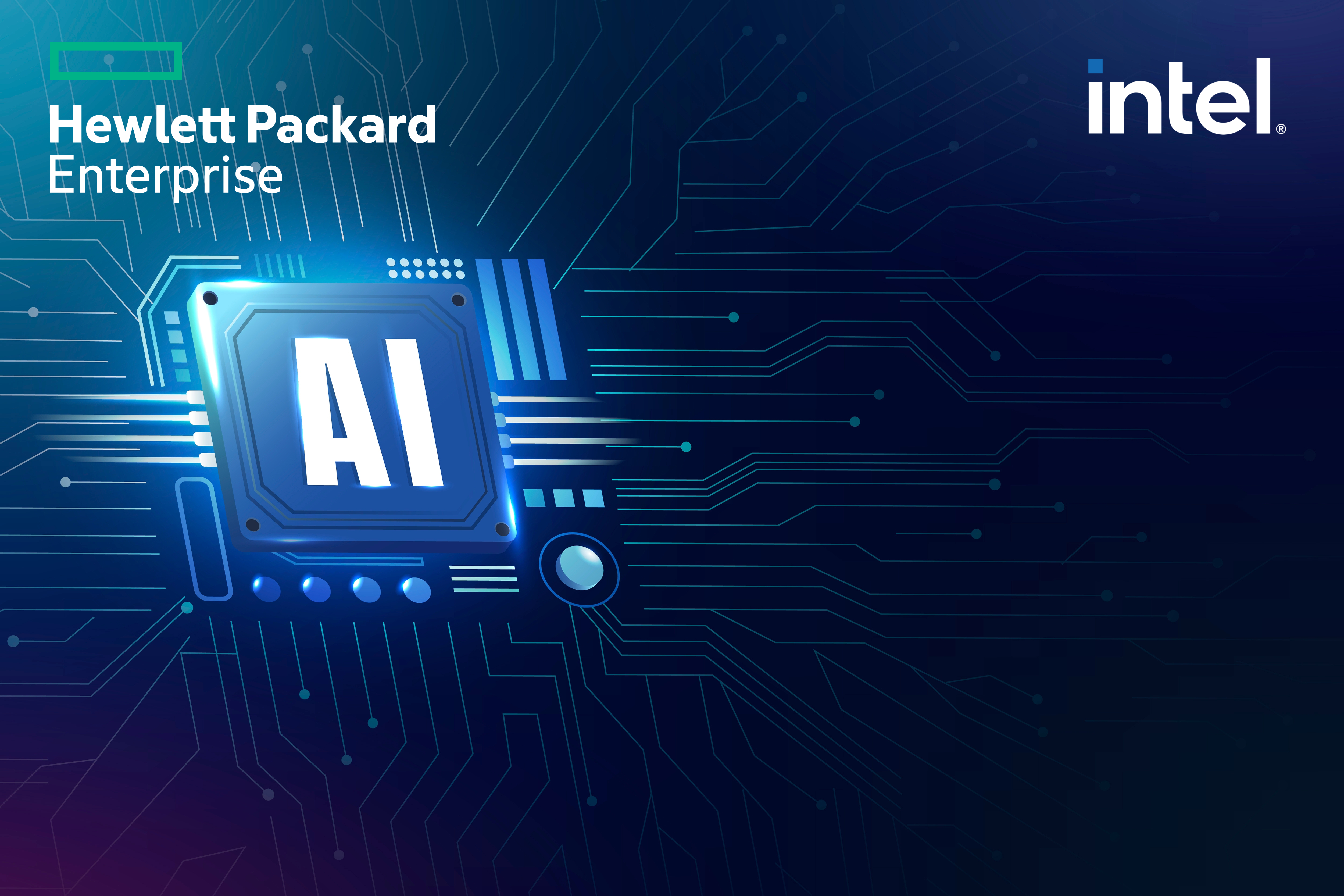 Digital strategies in the era of AI
Digital strategies in the era of AIWhitepaper Businesses are on the cusp of a major paradigm shift
By ITPro Published
-
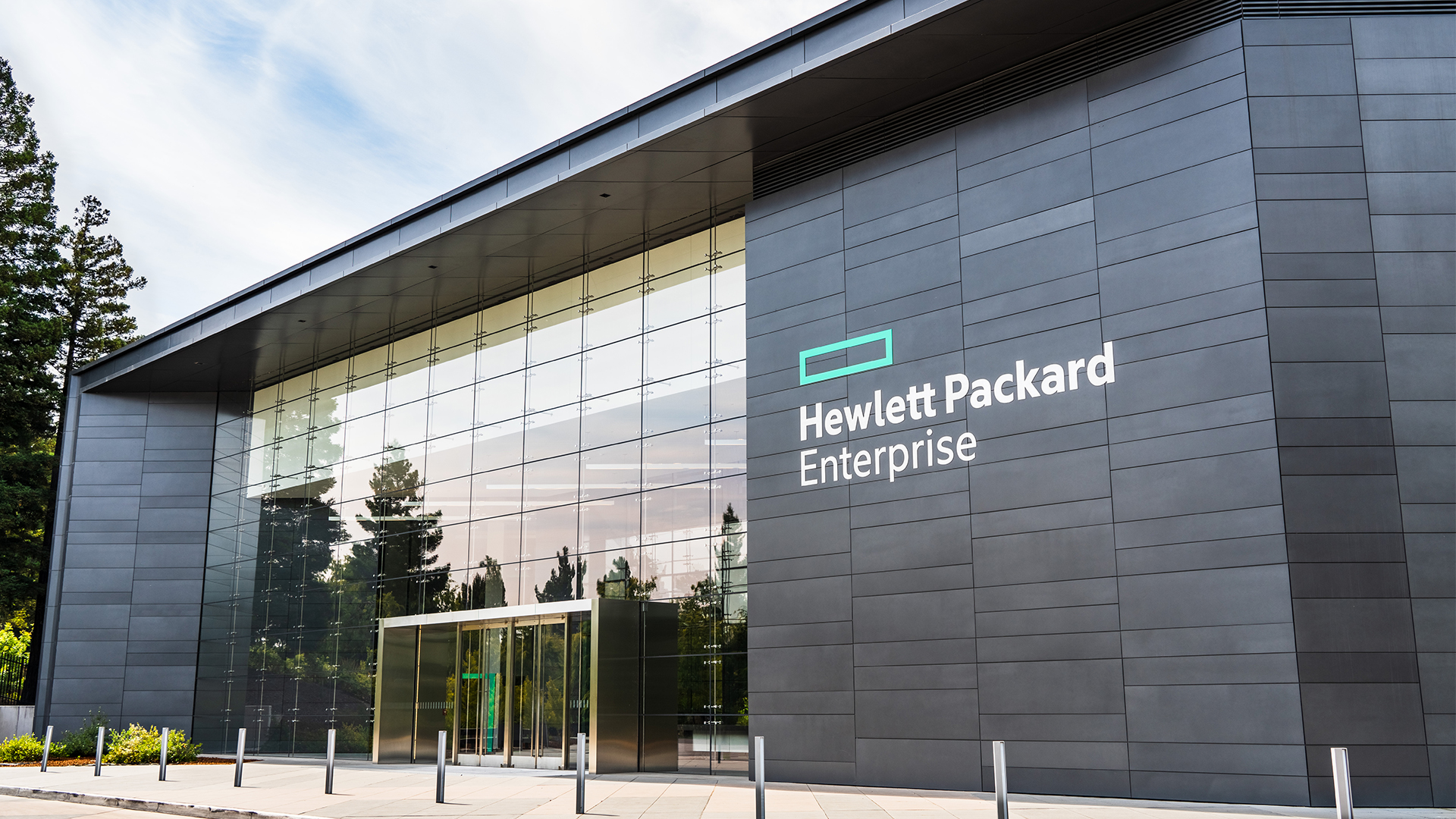 HPE’s AI and supercomputing journey continues with new Cray and Slingshot hardware
HPE’s AI and supercomputing journey continues with new Cray and Slingshot hardwareNews The company is also wooing MSPs and enterprises looking to roll out AI on-premises
By Jane McCallion Published
-
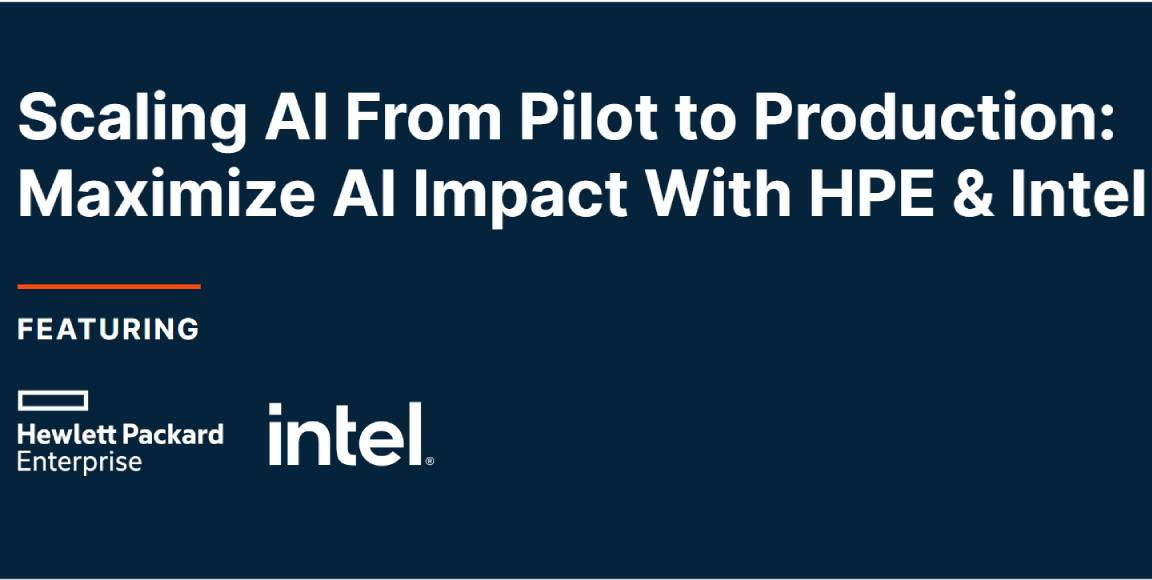 Scaling AI from pilot to production: Maximize AI impact with HPE & Intel
Scaling AI from pilot to production: Maximize AI impact with HPE & IntelWhitepaper Transform AI proof-of-concepts into full-scale implementations
By ITPro Published
-
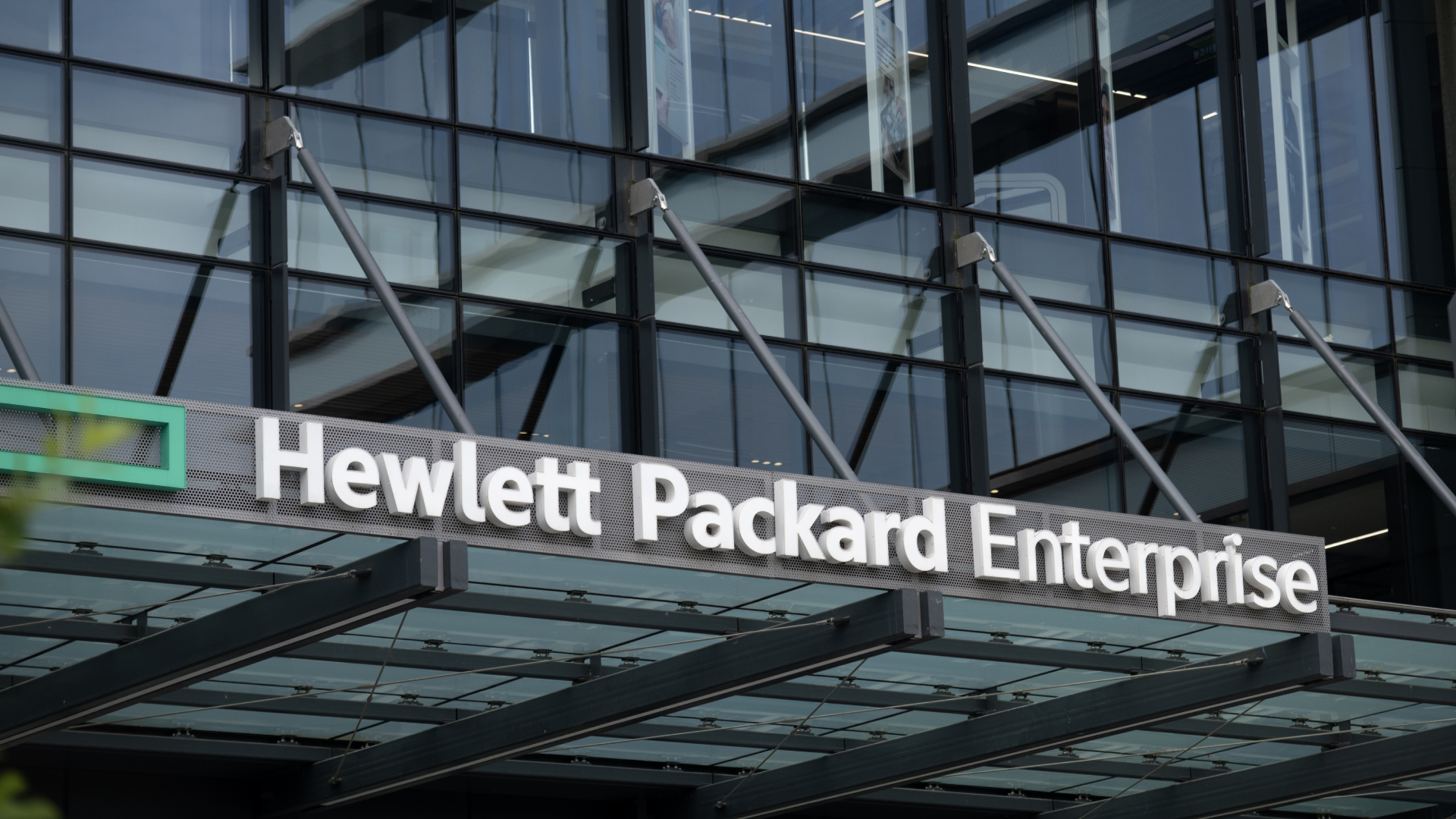 HPE’s ‘one-click AI solution’ for private cloud cuts project times from months to a ‘single moment’
HPE’s ‘one-click AI solution’ for private cloud cuts project times from months to a ‘single moment’News The new tools allow generative AI virtual assistants to be launched in seconds, using private data
By Emma Woollacott Last updated
-
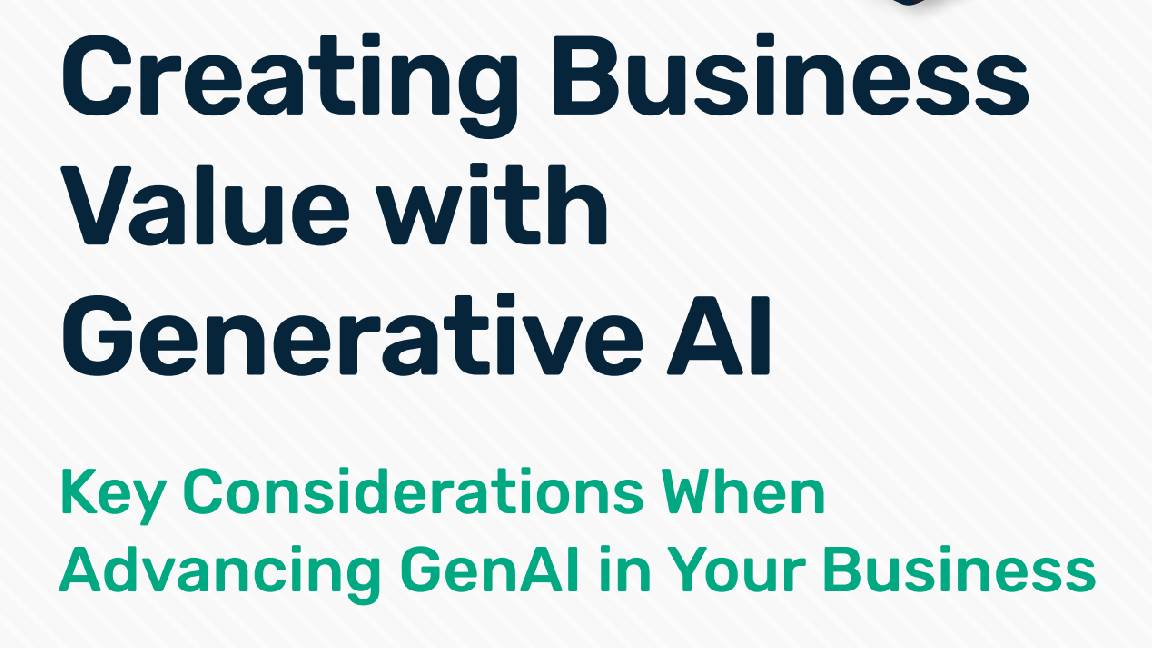 DE: The Gorilla Guide® to... Creating business value with generative AI
DE: The Gorilla Guide® to... Creating business value with generative AIWhitepaper Key considerations when advancing GenAI in your business
By ITPro Published
-
 FR: The Gorilla Guide® to... Creating business value with generative AI
FR: The Gorilla Guide® to... Creating business value with generative AIWhitepaper Key considerations when advancing GenAI in your business
By ITPro Published